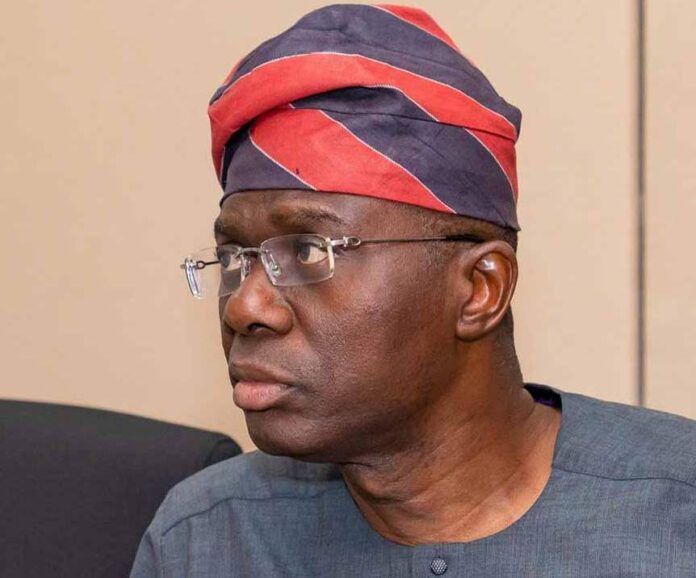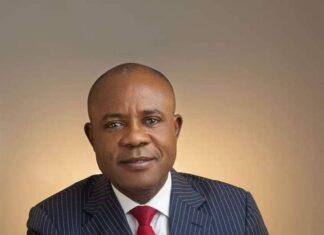By Jeph Ajobaju, Chief Copy Editor
Lagosians are groaning under the fee and the hassle of driver’s verification card they see as double taxation because it is similar to a federal driver’s licence which fee the state has also increased above the rate recommended by the Joint Tax Board (JTB).
Complaint about the verification card fee being a double taxation led to its scrapping by former Governor Akinwunmi Ambode. But it has been reintroduced by Governor Babajide Sanwo-Olu.
The verification card is required of drivers employed by individuals and corporate bodies, and of drivers of commercial vehicles. By law, the card has to be renewed every year, each time at a fee.
Commercial bus drivers offset the cost by raising fares for commuters. That depletes the pockets of residents and reduces their purchasing power, compounded by rising food prices.
Excessive taxation reduces the purchasing power of consumers whose patronage of goods and services propels economic growth that boosts government treasury.
The JTB raised nationwide the fee for
· Driver’s licence (three years) N6,000 to N10,000
· Driver’s licence (five years) N10,000 to N15,000
But in Lagos the fee is
· Driver’s Licence Fresh/Renewal (three years) – N10,350
· Driver’s Licence Fresh/Renewal (five years) – N15,450
The cost of vehicle number plates has also gone up nationally, but it is higher in Lagos, Nigeria’s richest state driven by Internally Generated Revenue (IGR) which is currently more than N40 billion per month.
A report in The Guardian (Nigeria) reproduced below illustrates how aggressive revenue quest by the state can make life unbearable for residents.
VIO officers demand verification card
Kehinde Oluwadare, a company driver, was driving a Toyota Prado from Maryland to Oshodi but was stopped by Vehicle Inspection Officers (VIOs) as he tried to join Gbagada Expressway enroute Oshodi, after Anthony Village bus stop.
He was going to Ajao Estate, Isolo to pick his boss at a hotel on Airport Road.
Convinced that all his vehicle documents and particulars, including the driver’s licence, were intact, he slowly brought the jeep to a halt and exchanged pleasantries with the officers.
One of them demanded his vehicle particulars. After perusing the documents, the officer requested his Drivers’ Institute Verification Card (DIVC) issued by the Lagos State Drivers’ Institute (LASDRI).
Confused by the request, Oluwadare politely told the officer that he did not understand and the officer threatened to take him to their nearby office for documentation.
However, after moments of pleading, the officer allowed him to go but instructed him to go to the institute for testing and to obtain the verification card to prevent the vehicle from being impounded.
On further inquiry, Oluwadare learnt it was a prerequisite for his continuous driving in Lagos and should be renewed yearly.
Oluwadare, who took to driving after losing his job at a bank, said he was fortunate to meet courteous officers.
But that was not the case for Johnson Oteh, an Uber driver arrested in Ikeja by VIO officers because he could not produce the DIVC.
His Toyota Corolla car was also impounded. It was only released after paying a fine and N3,000 required for the DIVC at the LASDRI office in Ilupeju.
The two cases represent harrowing experiences Lagos drivers pass through in a bid to eke out a living.
Some of the drivers, who drive for themselves or others, sometimes bribe VIO officers to avoid being delayed or their cars being impounded.
Double taxation
However, the driver of a director in Isolo told The Guardian that the verification card was suspended by Ambode because it amounted to double taxation, but was restored by Sanwo-Olu.
The driver, who did not want his name disclosed, questioned why he still needed yearly verification after going through a lot of tests to get a national driver’s licence.
In his view, this is not the best of times for drivers in Lagos as the imposition of a N3,000 fee for verification card along with a driving licence is double taxation.
He said it is worrisome because getting a driver’s licence involves officials of VIO, Federal Road Safety Corps and Lagos State Traffic Management Authority (LASTMA).
A lawyer, Ojo Michael, said the policy is counterproductive to the effort by Lagos to attract investors, stressing that in other countries, driver’s licences last for life and not renewable as is the case in Nigeria.
To Michael, it is unfathomable that Lagos, a pace-setter state, would employ such antics for revenue collection
But state Vehicle Inspection Service (VIS) Director, Akin Fashola, insisted that recertification is compulsory for all motorists driving for a living.
He said the law in Lagos is that commercial drivers are to have a DIVC along with their driver’s licence, being a requirement every year they go for recertification.
Private drivers and professionals must also have certification, he added.
“Commercial drivers, BRT and Danfo are included, as well as those that drive in banks. If you have a driver, you are paying for the driver, he must do certification annually,” Fashola explained.
He rejected the idea that it is double taxation because it is state law.
“It is a certification for those driving. It is for safety and for identification and one of the control measures [to ensure] that those drivers in that category are truly well and equipped to handle that kind of job.”
Transportation Commissioner Frederic Oladeinde told The Guardian that the Drivers’ Institute trains commercial drivers.
“Apart from having a driver’s licence, as a commercial driver is entrusted with people’s lives, hence the institute will recertify them every year.
“It is about retraining, making sure that they are fit to carry other people; it is not a driver’s licence. It is a recertification,” he said.
Section 211 of Lagos State Drivers’ Institute, Part V111, provides courses for instruction, training, and sets standards for driving schools in collaboration with the Ministry of Transportation.
The Drivers’ Institute
· Seeks to ensure that all professional drivers in the employment of the government and private organisations attend the institute for training and re-training at least once a year to update their skills.
· Issues certificates of competence to drivers who successfully complete training
· Provides facilities to assist registered driving schools
· Compiles and maintains data of driving schools and professional drivers













